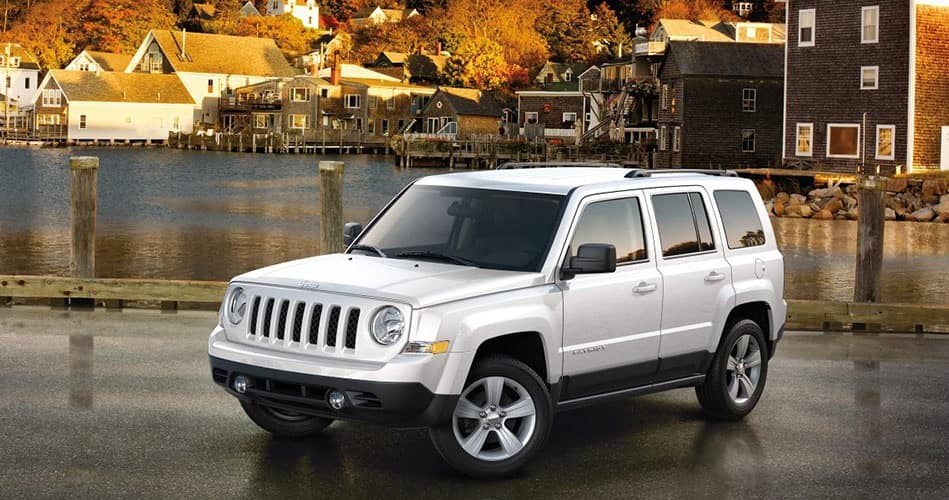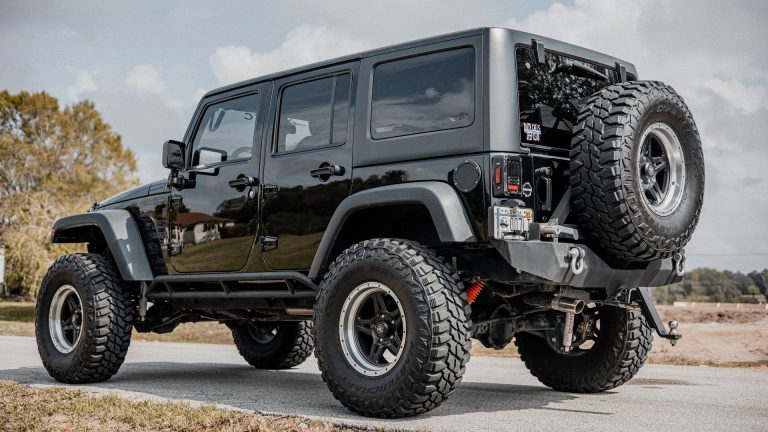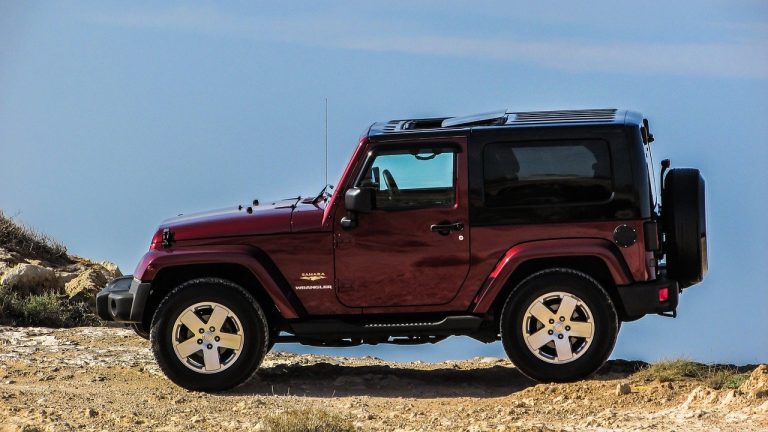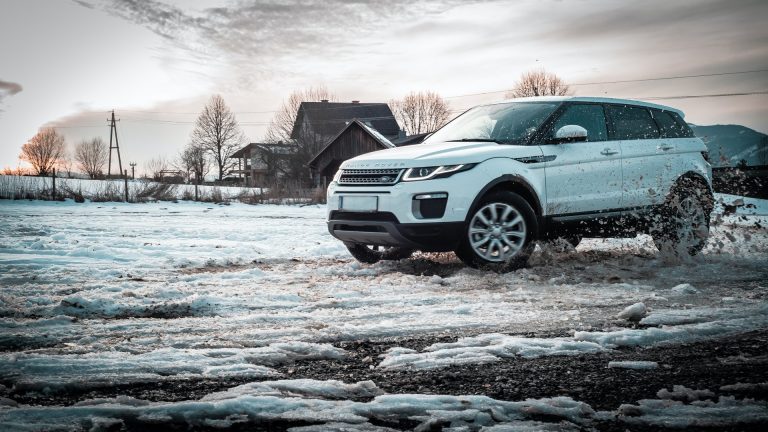Jeep Patriot Transmission Problems (And Other Issues) to Look Out For
The Jeep Patriot, although now discontinued, continues to be a fan favorite for its affordability and style. The Patriot was first released in 2007 and discontinued in 2017. Despite having its fair share of fans, the Jeep Patriot is also known to have several significant transmission issues, giving it a black mark in the reliability department.
If you’re considering getting a used Jeep Patriot, here are some of the most common issues that you’ll need to look out for.
Table of Contents
- Problem 1: Transmission Noises
- Problem 2: Stalling
- Problem 3: Loss of Acceleration
- Problem 4: Overheating
- Problem 5: Grinding Sounds
- Problem 6: Gear Slippage
- Problem 7: Shakiness
- Jeep Patriot: Other Problems
- Conclusion
Problem 1: Transmission Noises
One of the most common issues reported with Jeep Patriots is unusual transmission noises. Your transmission shouldn’t make any noise, so if you hear any of these it can mean something is wrong.
Some of the common noises that are reported are:
- Roaring
- Gurgling
- Whistling
- Whining
These noises have been reported to occur during several situations, but the most common are:
- When reversing
- When accelerating
- When changing gears
The Solution to Transmission Noises
If you hear noises when you are reversing, the problem will likely come from the fluid line, which may be clogged. Unfortunately, failure to get this fixed will only cause it to worsen, so it’s important to take it to a mechanic to get it unclogged.
If you hear noises when accelerating and your RPMs don’t increase no matter how hard you try, the transmission might be damaged from a lack of transmission fluid. Control the fluid levels. If they are low, refill them. If they are fine, take your vehicle to the mechanic.
If you hear noises in gears, the issue can be coming from the torque converter. This is a severe problem and needs immediate attention from a mechanic.
Problem 2: Stalling
One of the most frequent issues reported on Jeep Patriot models is stalling. This primarily occurs after refueling. Some users also report stalling when they hit the accelerator. These problems are more likely to appear in humid seasons.
Unfortunately, if your Jeep Patriot stalls and the Check Engine light comes up, you just encountered this issue. The problem with this issue is that it is extremely dangerous. You definitely don’t want to have your car stalling in the middle of a busy highway or when at a crossroad.
The Solution to Stalling
Unfortunately, this is one of the only issues that doesn’t seem to have a tailored solution. As a result, many Patriot owners have reported investing tons of money and time in mechanics, trying to fix it with no positive outcome.
Jeep also has no official answer to this problem. So, unfortunately, if this starts happening to your Patriot, it may be time to retire your vehicle. This issue is severe and can cause hazardous accidents.
Problem 3: Loss of Acceleration
Similar to the stalling problem, some Jeep Patriot models might experience a sudden loss of acceleration power. However, unlike the previously described issue, this issue does have a solution.
A loss of acceleration power is actually a severe issue and it can happen any time. If it happens to your Jeep Patriot, it needs immediate attention.
When this happens, you might also notice other symptoms:
- CLE indicator lights popping up
- Elevated transmission temperature
- Loss of traction control
- You may also hear popping noises
The Solution to Loss of Acceleration
The good news is that this specific problem has a solution. You’ll likely need your TCM (Transmission Control Module) changed. Depending on the piece’s availability, it could take anywhere between one day and one week.
So be ready to find an alternative mode of transportation while your Patriot is in the shop.
Problem 4: Overheating
This issue is pretty straightforward and will most likely appear only on very long trips at high static speeds (65-75 mph). When this happens, you may also notice a loss in acceleration. The RPMs will continue to increase, but your speed will decrease, and you might lose control of your vehicle.
Keeping track of the transmission temperature is not an easy task since you can’t control it from the engine temperature gauge.
The Solution to Overheating
You can try and troubleshoot this yourself with an OBDII scanner (which you can get on Amazon). If you get failure codes related to the transmission overheating (check the user’s manual), you should then check the transmission fluids. If the fluid is too low or even dirty, you should flush it and change it.
If that doesn’t seem to be the problem, the next step is to take your Jeep Patriot to a mechanic.
Problem 5: Grinding Sounds
This problem tends to happen more often on manual transmission models rather than automatic ones. These grinding noses are usually associated with changes in your speed, from acceleration or braking.
If you hear a grinding noise, don’t ignore it. It could end up damaging your car and becoming a serious safety hazard. The grinding noise sounds as if there are rocks inside your vehicle and it tends to happen more often during cold weather.
This issue doesn’t come with any warning lights, but that doesn’t make it less critical.
The Solution to Grinding Sounds
There are several things that you should check if you hear grinding sounds coming from your Jeep Patriot. Some of these you can check yourself, and others will need a professional mechanic.
Fluid levels
The first thing you should check is the fluid levels of the transmission, differentials, and power steering. If they are low, you’ll need to flush them and replace the fluids.
Fluid Contamination
The transmission fluid may have some debris buildup. In order to fix this, you’ll need to change the transmission fluid.
Bearings
Wear and tear are frequent in bearings, and you should fix them as soon as you notice them. The noise would occur primarily when cornering at low speeds.
Steering Pump
An old steering pump can lead to issues with the steering belt and produce these noises.
Damaged Gear
If the grinding sounds appear mostly when changing gears, then the issue might be with the final drive gear. It may need to be replaced.
Defective Synchronizer
When you drive, the synchronizer is the piece in charge of making your movements smooth. A faulty or worn-out one will produce grinding sounds and make it harder to shift.
Problem 6: Gear Slippage
This is one of those issues that you definitely don’t want happening to your car. When the gear slips, you can lose control of the vehicle which can lead to damage, injury, or worse. The worst part is that this can happen with no warning.
If warning symptoms do appear, you may notice the following:
- Difficulty in changing gears
- The vehicle changes independently from one driving mode to another (manual to automatic, a gear to neutral, etc.)
- Your vehicle gets stuck in reverse
- Delay in changing gears
- Jumping out of the correct gear all of a sudden
All of the above could then lead to stalling, loss of accelerating power, and produce transmission noises. So please, do not dismiss this issue as it could cause a severe accident. Additionally, using the wrong gears could damage your car harshly.
Another symptom to look out for is the decrease in fuel mileage.
The Solution to Gear Slippage
First of all, you’ll want to check your transmission fluid for any contamination or low levels. Then, flush it out and replace if necessary.
If that was not the issue, you should now check:
- Transmission bands
- Transmission gears
- Solenoids
- Torque Converter
Before heading to see a mechanic, make sure to change the fluid and clean the filter as well. If those things don’t improve the situation, then definitely take the Jeep Patriot to your mechanic of choice.
Problem 7: Shakiness
This is one of the most frequent complaints from Jeep Patriot owners. If you notice violent shaking, don’t let it go. It could be directly related to other problems above (like overheating or stalling).
Some of the symptoms could be having really high RPMs even at low speeds (20 mph) and an unusual sound very similar to that of a helicopter coming from the rear end. However, it doesn’t seem to have any specific triggers causing the shaking, and the problem seems to disappear after you let the car rest for a few minutes.
The problem will likely reoccur if the root cause doesn’t get fixed.
The Solution to Shakiness
There are several steps that a mechanic can take to try and solve this problem. Unfortunately, all of them are very technical, so unless you know how to handle this, we recommend that a professional does it.
First, they should check these parts:
- Sway bar
- Transmission fluid
- ABS
- Steering wheel
- Throttle body
- Rear lower control arm
If none of these are the cause of the issue, the next step is to update the ECM/ECU/PCM. This should result in an improvement. However, the copper spark plug might also need replacement.
Jeep Patriot: Other Problems
The above-listed problems are the top seven reported by Jeep Patriot owners in the past years. But of course, there are other issues that may arise, just like with any other car.
Here are some additional problems, albeit less common, that have been reported by Jeep Patriot owners.
Burning Smell
Nobody likes a burning smell coming from beneath the hood. But, if this is happening to you, there might be several issues.
The first one is an oil leak. You can quickly check for this by checking under your car for any oil stains on the ground.
The next one is burnt plastic pieces. Turn off your car and open the hood. Try to find the source of the problem, but always use caution as many pieces will be scorching hot. Any burnt plastic piece will need replacement.
Last but not least, check for fluid levels as this may be causing the burnt smell.
Hot Water
If the AC drain tube gets clogged, the water stuck in it will eventually become very hot. This will directly impact the transmission and could cause significant problems.
Transmission Fill Tube
If the transmission fill tube gets damaged, this could cause real damage to your car. A mechanic will be able to check the status of the fill tube and confirm whether it needs changing or not.
Clunking Noise
Aside from the noises that we highlighted before, you might notice a very loud clunking noise. If that’s the case, this usually refers to a corroded sub-frame or control arms.
They connect directly to the powertrain and the engine, meaning that it could end up causing costly damage to your vehicle.
Freedom Drive
The Jatco-built CVT of the Jeep Patriot works with Freedom Drive, a specific 4WD system. And this is one of the leading causes of transmission issues for this Jeep model.
Replacing the transmission, all in all, can cost anything between $1,000 and $3,500. And this doesn’t account for any labor or additional parts. This is unfortunate since it is quite an expensive investment for a discontinued model.
Water Leaking
This issue comes up mainly with the 2016 model and only after 10,000 miles. You may notice water leaking inside of the cabin. A mechanic will be able to find the source of the issue and revert it.
It was also found in the 2011 and 2015 models but with less recurrence.
Windows
Last but not least, some of the older models (2007-2008) reported some leaking issues from the sunroof. There have also been several problems reported of power windows failing after some time.
For the first problem, any mechanic could help by sealing off the sunroof promptly. It is not a significant issue but could obviously cause some problems to the interior if not handled when it first arises.
The second issue needs an electrical repair, which would cost more than the first issue. It doesn’t always happen, but it is frequent, mostly in the 2008 models.
The good news is that solving these problems in older models is not so costly. You can count on $150-$250 expenses depending on your state and the exact model of the car.
Conclusion
Even though the above issues may seem daunting, they do not occur in all Jeep Patriot vehicles.
If you are considering purchasing a second-hand Jeep Patriot, you shouldn’t be afraid to do so. We suggest that you ask for the following information from the original owner:
- Mileage (since most of these issues appear after considerable mileage).
- If their vehicle has ever had any transmission issues fixed before
- If their car has any noises when moving
- If their Jeep Patriot has ever stalled or lost acceleration power
Ideally, you should be able to request a test drive so that you can check for yourself. And you could also ask your mechanic of choice to inspect the vehicle before purchasing it.







